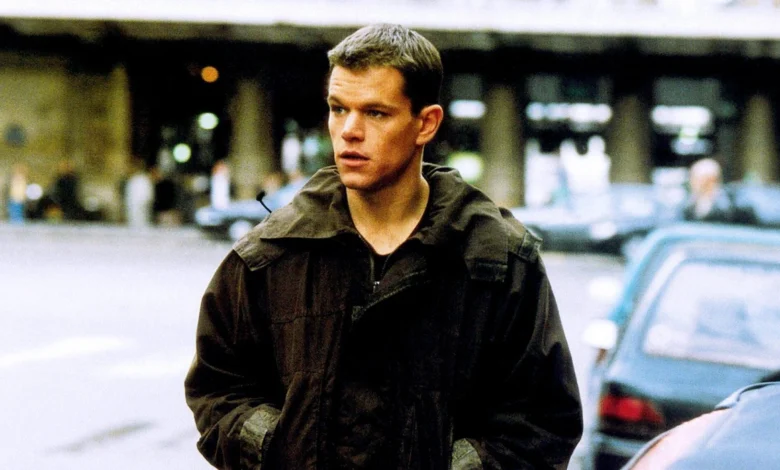Jason Bourne: The Ultimate Spy Thriller Icon

Introduction to Jason Bourne
When you think of modern spy thrillers, one name almost always comes to mind—Jason Bourne. He’s not your typical tuxedo-wearing, martini-sipping secret agent. Instead, Bourne is gritty, grounded, and dangerously efficient. Created by author Robert Ludlum and brought to life on screen by Matt Damon, Jason Bourne has become an iconic figure in both literature and cinema. His story isn’t just about espionage—it’s about survival, identity, and the moral complexities of government secrets.
What makes Bourne stand out is his humanity. Unlike other fictional spies who always seem in control, Bourne begins his journey with amnesia, unsure of who he is or why he has lethal combat skills. This vulnerability makes him relatable while still keeping him mysterious. Viewers and readers are drawn into his world because they want to unravel the truth alongside him. That’s what gives Bourne his edge: he’s not just a character you watch; he’s someone you experience.
Over the years, Jason Bourne has grown from a literary hero to a cinematic powerhouse. The Bourne franchise has not only redefined spy thrillers but has also influenced how action films are made today. From frenetic fight scenes to high-stakes car chases, Bourne set a new standard for realism and intensity in Hollywood.
The Origins of Jason Bourne in Literature
Jason Bourne first appeared in Robert Ludlum’s 1980 novel The Bourne Identity. The book introduced readers to a man pulled from the Mediterranean Sea with no memory of his past, only to discover he’s a highly trained assassin. The genius of Ludlum’s creation lies in the way Bourne’s personal search for identity mirrors his fight against shadowy organizations and hidden agendas.
Ludlum’s Bourne was not just an action hero; he was a character layered with psychological tension. The struggle between who he was trained to be and who he wanted to become forms the core of his journey. That internal battle set him apart from other spy fiction characters at the time. He wasn’t perfect, nor was he completely in control of his destiny—he was flawed, conflicted, and human.
After Ludlum’s passing in 2001, author Eric Van Lustbader continued the Bourne series, keeping the character alive for new generations of readers. While some fans feel the later books differ in tone, the essence of Bourne remains: a man caught between survival and morality. Through literature, Bourne became a cultural symbol of espionage, identity crisis, and the dangers of unchecked power.
Jason Bourne on the Big Screen
While the books laid the foundation, it was the movies that cemented Jason Bourne’s place in pop culture. The Bourne Identity (2002), directed by Doug Liman and starring Matt Damon, introduced a new kind of spy film to audiences. Instead of flashy gadgets and smooth-talking charisma, Damon’s Bourne relied on raw physicality, intelligence, and adaptability.
The sequels, The Bourne Supremacy (2004) and The Bourne Ultimatum (2007), directed by Paul Greengrass, took the franchise to new heights. The use of handheld cameras and fast-paced editing created a sense of urgency that kept audiences on the edge of their seats. Unlike the polished world of James Bond, Bourne’s universe was gritty, chaotic, and unnervingly real. This style became so influential that many action films afterward adopted the same techniques.
Matt Damon’s portrayal of Bourne also deserves special credit. His performance brought depth to a character who could have easily been one-dimensional. Damon captured both the cold efficiency of an assassin and the vulnerability of a man desperate to understand himself. That combination made Bourne not only believable but unforgettable.
What Makes Jason Bourne Different from Other Spies
Spy fiction is filled with larger-than-life characters, but Bourne stands apart for several reasons. First, he doesn’t seek out danger for glory or thrill—he’s often running from it. His missions are usually about survival, self-discovery, or uncovering conspiracies that he never asked to be part of. Unlike James Bond, who thrives in espionage, Bourne is a reluctant participant, dragged into a world he’s constantly trying to escape.
Second, Bourne’s fighting style and action sequences feel more grounded than other spy films. He doesn’t rely on gadgets or over-the-top stunts. Instead, he uses improvisation—turning everyday objects into weapons, using his environment strategically, and relying on sheer skill. This practical approach resonates with audiences because it feels both inventive and believable.
Finally, Bourne’s character brings a moral complexity rarely seen in the genre. He constantly questions the ethics of what he was trained to do. His struggle is not just with enemies but with himself. That constant inner conflict makes him relatable to viewers who crave more than just action—they want depth, emotion, and realism in their heroes.
The Cultural Impact of Jason Bourne
The Jason Bourne franchise has left an undeniable mark on both literature and cinema. In literature, Ludlum’s original novels helped shape the modern spy thriller genre, blending psychological intrigue with fast-paced action. On screen, Bourne redefined how action movies are made. The shaky camera work, intense close combat, and realistic chase scenes influenced everything from Taken to the rebooted James Bond films starring Daniel Craig.
Beyond technique, Bourne also shifted how audiences viewed spies. Instead of glorified agents with unlimited resources, Bourne presented a flawed, vulnerable man fighting not only his enemies but also his own government. This perspective tapped into post-Cold War anxieties and modern skepticism about surveillance and secret operations. Bourne wasn’t just entertaining—he reflected the times.
The franchise has also sparked academic discussions about identity, morality, and government overreach. In a world where technology blurs privacy and power often goes unchecked, Bourne’s story resonates with anyone questioning authority or searching for personal truth. That’s why Bourne is more than just a character; he’s a symbol of resistance and resilience.
The Evolution of the Franchise
Over time, the Bourne franchise expanded beyond its original trilogy. The Bourne Legacy (2012), starring Jeremy Renner, introduced a new character but struggled to capture the same magic. Then, in 2016, Matt Damon returned for Jason Bourne, bringing fans back to the character they loved. While opinions on the later films vary, there’s no denying that Bourne continues to be a cultural force.
The evolution of the franchise reflects the changing landscape of espionage storytelling. What began as a Cold War-inspired thriller has transformed into a modern narrative about surveillance, cyber warfare, and government control. Each new installment adds layers to Bourne’s journey while also mirroring real-world issues, making the story both timely and timeless.
The future of Jason Bourne remains open-ended. Whether through more films, novels, or even television adaptations, the character has the flexibility to evolve with the times. His story isn’t just about action; it’s about identity, morality, and the eternal struggle between freedom and control. That’s why Jason Bourne will always stay relevant.
Why Jason Bourne Remains Timeless
At the heart of Jason Bourne’s timelessness is the universal theme of identity. Everyone, in some way, struggles to understand who they are and where they belong. Bourne’s journey takes that struggle to an extreme—waking up with no memory and discovering a deadly past—but the core idea resonates with everyone.
Additionally, Bourne’s unwillingness to blindly follow orders makes him a hero for modern times. He represents independence, free will, and the courage to question authority. In a world where people often feel powerless against larger systems, Bourne embodies the fight for autonomy and truth.
Finally, the sheer quality of the stories—whether in books or films—ensures Bourne’s place in pop culture. From Ludlum’s gripping novels to Damon’s compelling performances, the franchise delivers consistent entertainment while offering thought-provoking themes. That balance of action and depth ensures that Jason Bourne will remain a beloved figure for generations to come.
Conclusion
Jason Bourne is far more than just another spy character. He’s a cultural icon, a cinematic innovator, and a symbol of resilience in the face of overwhelming odds. His journey from page to screen has captivated millions because it blends action with humanity, espionage with morality, and suspense with emotional depth.
The reason Bourne continues to resonate is simple: he reflects our own struggles. In his quest for identity and truth, we see our own search for meaning and purpose. And in his resistance against powerful forces, we find inspiration to question, resist, and fight for what’s right.
Whether through the novels that started it all or the films that redefined action cinema, Jason Bourne’s legacy is undeniable. He isn’t just a spy—he’s the ultimate representation of the modern action hero.



